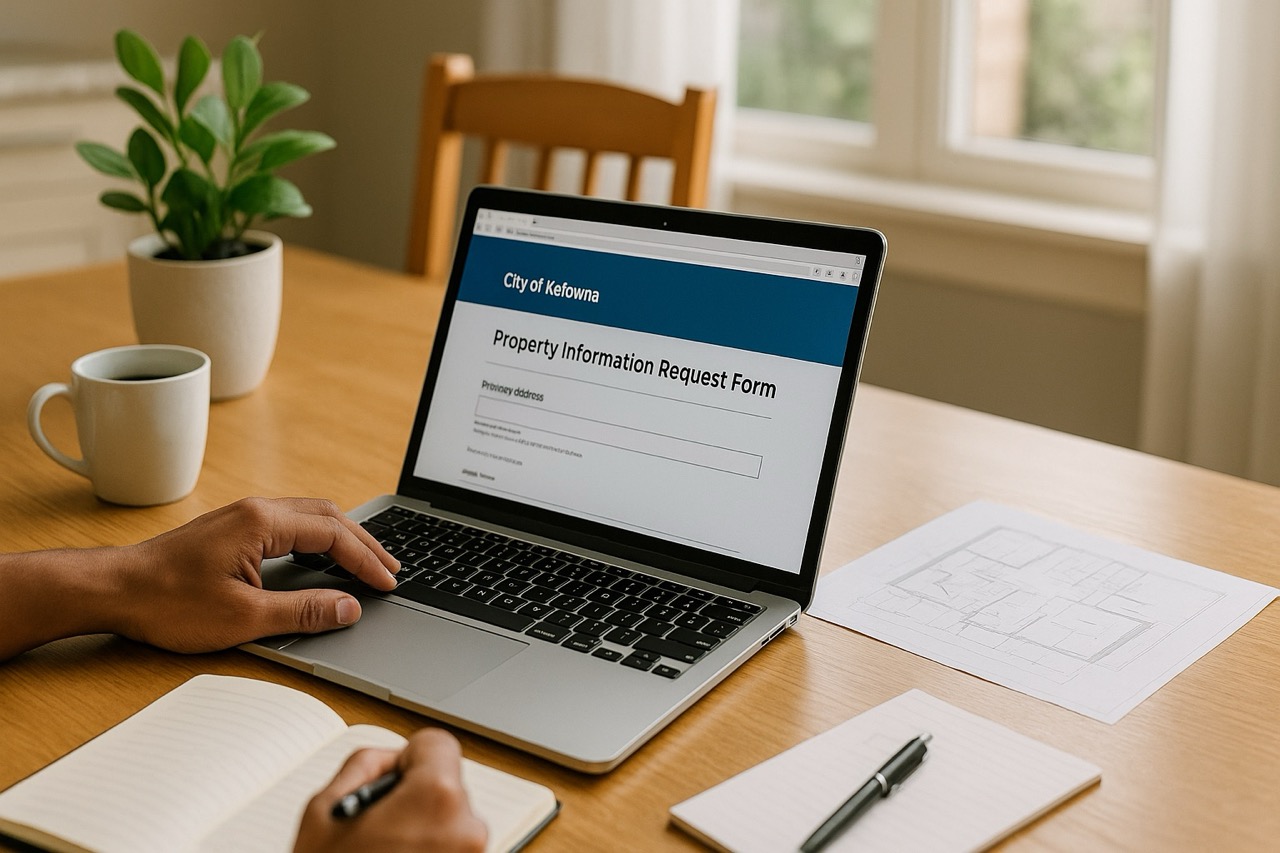Set yourself up for success with a stress-free experience.
“Clarity is the foundation of every good relationship.” Dan Byl
Having the right information ready before you speak with contractors reduces stress, adds clarity, and helps you get the most out of those early conversations.
A good contractor will walk you through the challenges, explore ideas, and even talk rough numbers—if they have the right details up front. This saves you time and energy, and helps you see who’s truly there to support your goals versus who’s just trying to land the next job.
This checklist will help you gather what you need to ask better questions, have more productive conversations, and make confident decisions right from the start.
1. Ask Your Local District for Property Info

Most cities offer access to building plans or records of past renovations. Collecting these documents gives your contractor valuable context and helps avoid hidden surprises.
Most municipalities have an online request form, or you can call the building department—staff are usually happy to help.
2. Take Photos of Your Current Space

Before your first call, take wide photos of each room you’re planning to renovate. Stand back and capture as much of the space as possible.
Remember: we can always zoom in, but we can’t zoom out. These photos give your contractor a clear view and help them offer better input.
3. Find a Few Inspiration Photos
Try to find just a few images of spaces you like. something to show style, mood, or layout ideas. A good contractor will guide you from where you are to where you want to be, and the clearer your vision, the faster you’ll get there.
4. Check That Your Contractor Is Legit

Ask if they’re licensed, insured, and covered by WCB. These aren’t just boxes to check—they protect your home and ensure the contractor can legally pull permits.
You can check WCB status here:
WorkSafeBC Clearance Letter Search
If they’re not in good standing, that’s a red flag. It may suggest poor financial management or a lack of accountability.
5. Look Into Their Reputation
A quick search online can tell you a lot.
- Do they have recent reviews?
- A working website?
- Project photos?
Contractors who take pride in their business will work hard to protect their reputation—and that usually means working hard to keep clients happy.
No reviews or turned-off reviews are often a sign they’re hiding something.
6. Understand the Timeline
Planning a project well can take several weeks. And even after the design is set, materials can often take time to arrive.
Start early, especially if you have a fixed deadline. Many of our clients call us back once they have worked with us, and they often choose to be away during the renovation because they trust us to take care of the details. That level of trust is what we aim for with every project.
7. Know What Year Your Home Was Built
Homes built before 1991 require a hazardous materials assessment (such as asbestos testing).
WCB requires this for safety—and so do we. If hazardous materials are discovered mid-project, timelines and budgets can shift dramatically. Bring it up early so everyone can plan accordingly.
8. Talk About Your Ideal Experience
How involved do you want to be? Do you want daily updates or just the highlights? Hands-on or hands-off?
Every client is different, and a good contractor adapts. We believe that how a project is done matters just as much as the final result. Letting us know your expectations up front helps us build a plan that fits you.
9. Ask About Local Rules
Each city has its own permitting process. Electrical, plumbing, and building permits all have specific requirements—and they’re not optional.
If you’re unsure what’s needed, your contractor should be able to guide you. Or you can always call your local city office directly—they’ll walk you through it.
10. Be Clear on Your Goals
Ask yourself:
- How do I want this renovation to improve my daily life?
- What problems am I trying to solve?
- How should the space feel and function?
We believe that no plan is completed until everyone has a clear understanding of what is going to happen, how it is going to look, and how it is going to function.
You’re the one who will live with the results. Our job is to make sure it fits your life—today and for years to come.
Feeling overwhelmed?
That’s completely normal.
The right contractor should walk you through all 10 of these steps—clearly and without pressure. If they aren’t willing to do that, ask yourself: Do I really want to trust them with one of my most valuable assets—and have them in my home for weeks?
Ready?
If you’re ready to work with someone who puts your experience first, All In Contracting is here to help.
We guide you through every step—from first conversation to final walkthrough—with clarity, transparency, and care.
